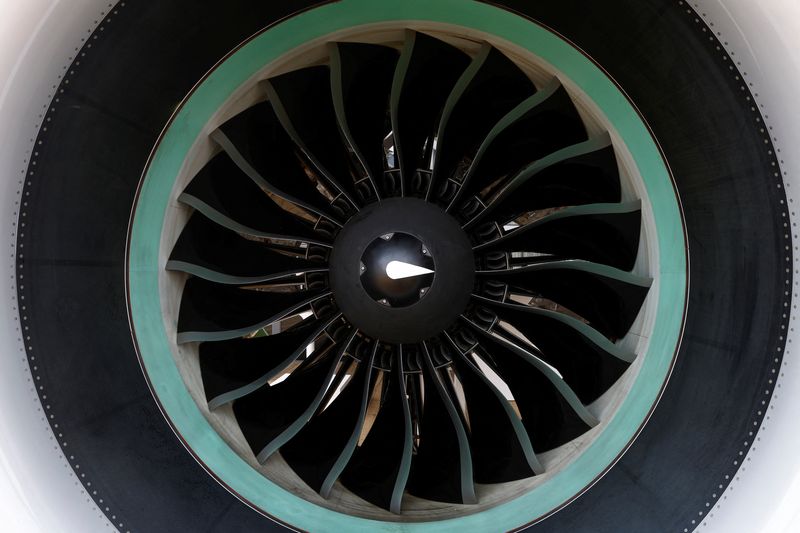By Valerie Insinna
WASHINGTON (Reuters) -RTX Corp will need up to 60 days to inspect and fix each GTF engine used on Airbus jets that were found to have a new problem involving contaminated powder metal, CEO Greg Hayes said in an interview on Tuesday.
At least 1,200 of the Pratt & Whitney GTF engines that power Airbus A320neo jets will need "accelerated removals and inspections," RTX, formerly Raytheon (NYSE:RTN), said earlier on Tuesday when it announced second-quarter results.
Engines potentially affected by the metal powder issue will not be put through the entire overhaul cycle, which typically lasts four to five months, Hayes said.
Instead, they will be brought in for a briefer period where technicians will disassemble the engines, inspect the high pressure turbine disks potentially affected by the metal contamination, and, if needed, replace the part.
"What we're trying to do is avoid all the other work that you'd normally do when you induct an engine," said Hayes. "We think that's a 60-day process max."
RTX shares plummeted 14% in morning trade before trimming those losses to off 10.7% on Tuesday afternoon.
Hayes acknowledged that news of the latest GTF problem was a "disappointment" but added that he expects the share price to recover.
"As is typical with investors, they see bad news and they run," he told Reuters. "The smart money and the long money will come back to the stock. And they will recognize the fact that first of all, this is not a $10 billion problem for RTX."
On the A320neo, the GTF competes against the LEAP engine produced by CFM International, a joint venture of Safran (EPA:SAF) and General Electric (NYSE:GE). According to data from CAPA - Centre for Aviation, Pratt & Whitney has retained a market share of about 45 percent since 2017.
However, the GTF has been plagued by durability problems that have forced airlines to ground aircraft due to a lack of spare engines and parts.
In June RTX announced that a supplier had installed the wrong part on an undisclosed number of GTF engines, resulting in a $500 million hit to the company's free cash flow.
Hayes said customers have been "resilient and understanding," but "their patience is not unlimited."
However, the RTX CEO batted away the suggestion that current problems could cause GTF customers to defect to the LEAP.
"If they want to change engines, that is a draconian step and there's probably not enough capacity out there, at least in the short term," he said.

About 36% of the 6,700 A320neo family aircraft on backlog do not have an engine provider chosen yet, said Mike Stengel of AeroDynamic Advisory.
"Backlogs for the A320neo are so long that many operators ... have time to see how the PW1100G durability and quality issues are resolved before jumping the gun and switching to the LEAP," he said. The PW1100G is the GTF model affected by the powder metal problem.